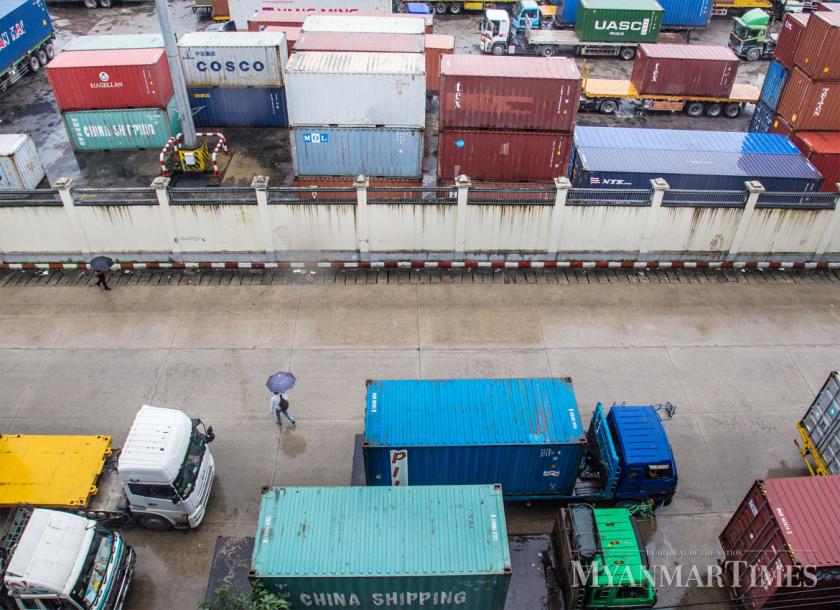International pressure is mounting in the west to force Myanmar to improve its human rights record although the US and EU are unlikely to impose sweeping sanctions on Myanmar
22 ตุลาคม 2561
Although the US and European Union (EU) are unlikely to impose sweeping sanctions on Myanmar as a result of the humanitarian crisis in Rakhine, international pressure is mounting in the west to force the country to improve its human rights record. In that light, Myanmar could face more trade sanctions in the coming quarters, according to a Fitch Solutions report released on October 17.
As a result, the research firm has downgraded its GDP growth forecast for Myanmar to 6.6 percent in 2018-19 and 6.8pc in 2019-20 from 6.8pc and 7pc, respectively.
“Although we continue to believe that the imposition of sweeping sanctions against Myanmar by western economies remains a measure of last resort, risks of such economically damaging actions have risen considerably, and we expect limited trade sanctions to be imposed over the coming months,” the Fitch report states.
“Should Myanmar lose all or a significant part of its preferential trade access to the EU and/or the US in the coming months, we would lower our real GDP growth forecasts further,” it said.
The developments comes after the EU said on October 4 that it is considering trade sanctions on Myanmar after the release of a 440-page report by the UN’s Independent International Fact-Finding Mission in September, which detailed the findings of its 15-month examination of the situation in Rakhine, Kachin, and Shan States. If trade sanctions are indeed imposed, Myanmar could lose special trade access to the bloc.
“Judging from the debate within the European Commission in October, we conclude that the EU remains irresolute with regards to imposing broad-based sanctions against Myanmar as this would also penalise ordinary citizens. Instead, we expect the EU to levy more targeted sanctions against Myanmar’s military and government,” Fitch reported.
During the debate, an EU official also said that removing Myanmar’s duty-free access is a measure of last resort, but that action must be taken if other measures are not effective in curbing the violence.
Until now, the EU has imposed travel bans and frozen the assets of several members of the Tatmadaw. Meanwhile, the US has also imposed sanctions on four Tatmadaw and police commanders and two army units in August.
Fitch Solutions noted though, that those sanctions have not been effective in pushing the authorities” to scale back on fighting in the northern and western states of the country, accelerate the resettlement of refugees, or ease control on press freedoms following the prosecution of two Reuters reporters for breaching the State Secrets Act.
It added the EU and US have the option to exempt certain sectors, such as textiles or gemstones, from preferential trade access compared to “a complete removal of special trade access, which would severely dampen economic development and drive Myanmar firmly into China’s sphere of influence.”
However, as Myanmar’s clothing industry is its top export earner after oil and gas, losing tariff-free access to the EU for garments would quickly weigh on foreign investment in the apparel industry, resulting in more damage to the common citizens than the Tatmadaw.
As such, “even though overseas shipments to the EU only account for 8.8pc of Myanmar’s total exports last year, while the US share was less than 1pc, we will still look to lower our real GDP growth forecasts for Myanmar in the unlikely event that either or both economies suspend all of Myanmar’s preferential trade access,” the report concludes.
(The Myanmar Times: https://www.mmtimes.com/news/us-eu-trade-sanctions-likely-international-pressure-mounts-fitch.html )











